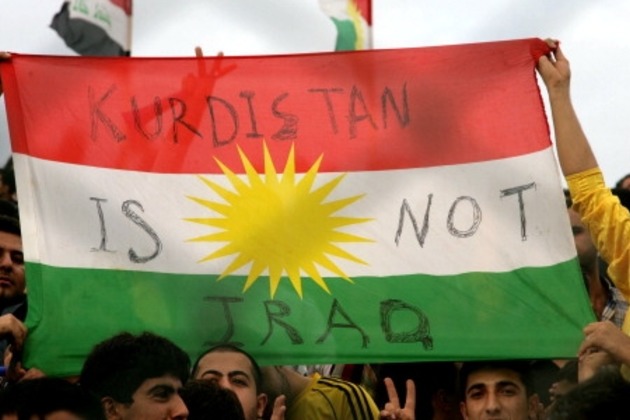:Looks like Iran has trouble with the different groups residing inside the country.
Iran's Kurdish Rebellion
by Stephen Schwartz
The Huffington Post
May 22, 2015
Note: This commentary was written with Veli Sirin.

Violent protests by Iranian Kurds have taken the world by surprise, and mainstream reporting on them is sparse. That is doubtless explained by the general absence of decent journalism under the regime of the Islamic Republic, including restrictions on the entry of foreign correspondents. Yet the events in Mahabad, a city of up to 280,000 mainly-Kurdish inhabitants in the Iranian province of Western Azerbaijan, has fascinating aspects to those who follow Kurdish (and Iranian) affairs.
The demographic profile of Iranian Azerbaijan reveals the ethnic diversity of Iran. The country is not entirely Persian, as many outsiders believe. Turkic, Kurdish, and other non-Farsi languages are spoken by large minorities.
The recent turbulence in Mahabad began as such urban troubles often do, with an alleged abuse of power, a death, and rapid communication through the streets. According to the English-language web portal of the Kurdish newspaper Rudaw, which is professional and reliable, in the first week of May a Kurdish woman, Farinaz Khosrawani, aged 25, died after she fell, jumped, or was pushed from the fourth floor of the Tara Hotel in the city. Ostensibly, the victim, while employed at the hotel, sought to escape a rape attempt by an Iranian state official.
Continue reading at:
Iran s Kurdish Rebellion Middle East Forum
Iran's Kurdish Rebellion
by Stephen Schwartz
The Huffington Post
May 22, 2015
Note: This commentary was written with Veli Sirin.

Violent protests by Iranian Kurds have taken the world by surprise, and mainstream reporting on them is sparse. That is doubtless explained by the general absence of decent journalism under the regime of the Islamic Republic, including restrictions on the entry of foreign correspondents. Yet the events in Mahabad, a city of up to 280,000 mainly-Kurdish inhabitants in the Iranian province of Western Azerbaijan, has fascinating aspects to those who follow Kurdish (and Iranian) affairs.
The demographic profile of Iranian Azerbaijan reveals the ethnic diversity of Iran. The country is not entirely Persian, as many outsiders believe. Turkic, Kurdish, and other non-Farsi languages are spoken by large minorities.
The recent turbulence in Mahabad began as such urban troubles often do, with an alleged abuse of power, a death, and rapid communication through the streets. According to the English-language web portal of the Kurdish newspaper Rudaw, which is professional and reliable, in the first week of May a Kurdish woman, Farinaz Khosrawani, aged 25, died after she fell, jumped, or was pushed from the fourth floor of the Tara Hotel in the city. Ostensibly, the victim, while employed at the hotel, sought to escape a rape attempt by an Iranian state official.
Continue reading at:
Iran s Kurdish Rebellion Middle East Forum


